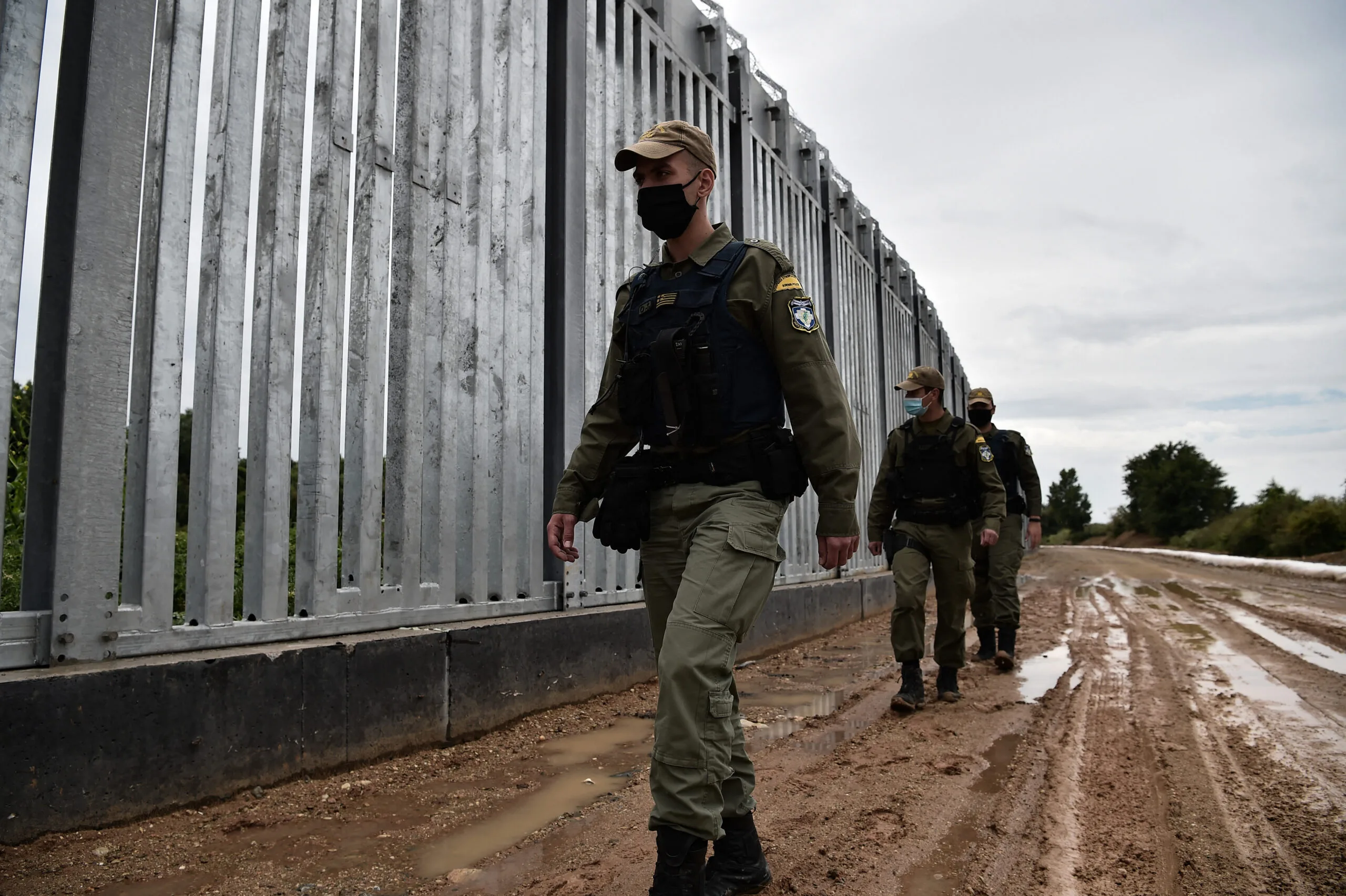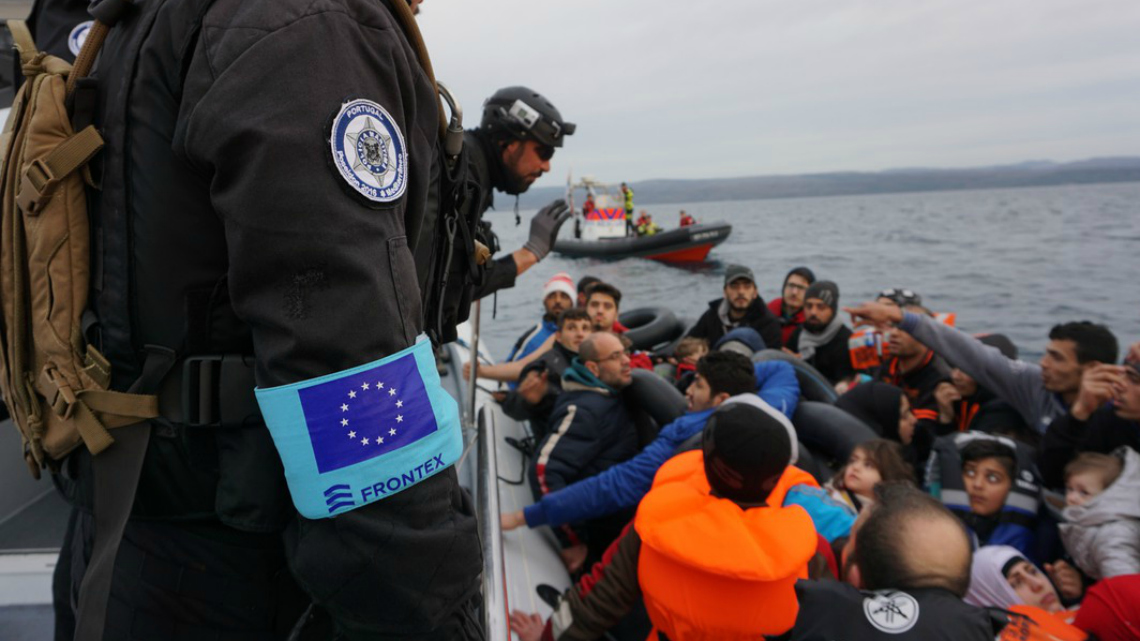Brussels – EU countries too often turn a blind eye to “serious, recurrent, and widespread” human rights violations against migrants and asylum seekers at the Union’s borders. That’s the sad finding – it can no longer be considered a warning – of the EU Fundamental Rights Agency (FRA), which says national authorities are not doing enough to investigate the numerous and credible acts of violence at their borders.
On the day in which Amnesty International denounces again the unlawful detentions and inhumane conditions at the EU-funded hotspot in Samos, Greece, the EU agency adds a piece to the puzzle: even when there are investigations at the national level, “they are often dismissed at the pre-trial stage.” And in any case – as noted by the European Committee for the Prevention of Torture (CPT) -“they do not meet the requirements of independence, thoroughness, transparency, timeliness, and victim participation” set by the European Court of Human Rights.
It is why an increasing number of victims are turning to the Strasbourg court, which in recent years has found five cases where national authorities in Greece, Croatia, and Hungary “failed to effectively investigate incidents of mistreatment and loss of life during border management,” according to FRA’s report. Over 30 cases of alleged mistreatment at the EU’s external borders are pending before the ECHR. Eight member states are involved: Croatia, Cyprus, Greece, Hungary, Italy, Latvia, Lithuania, and Poland.
Human rights violations at EU borders: Few investigations and even fewer convictions
The report cites among the shortcomings in national investigations the insufficient efforts to locate and listen to victims and witnesses, obstacles to the work of lawyers, and barriers to accessing crucial evidence, such as surveillance footage. More generally, “giving greater weight” to officers’ statements than those of victims and witnesses.

Among the most egregious examples is the case of an unaccompanied minor found unconscious in France by volunteers with a fractured skull and swollen lip. Police had stopped the young boy hiding in a truck on his way to the United Kingdom. The volunteers reported the case and allegations of possible French police involvement to the prosecutor’s office in Boulogne-sur-Mer, which did nothing about it. Also striking is what happened to two Palestinians apprehended by Greek authorities on Kos in June 2022: allegedly subjected to physical and sexual abuse and abandoned on a life raft at sea, the Turkish Coast Guard rescued them. The official complaint is still pending with the Greek prosecutor.
These are just a few examples of national proceedings in which “a sense of impunity prevails,” resulting in no convictions. “There are too many allegations of human rights violations at the EU borders,” said FRA’s director, Sirpa Rautio, stressing the need for “robust and independent investigations of all incidents of rights abuses.” But cases in which investigations are initiated are rare: the EU Agency reports the figure released by a French NGO, which said that in Calais, only one in ten cases of rights violations is reported to the police because victims are in a vulnerable situation, are afraid of reprisals, distrust the authorities, or fear potential negative impacts on the asylum process.
National authorities and Frontex: who carries out the investigations
When national border guards violate fundamental rights guarantees under European standards, it is the responsibility of the member state to conduct investigations based on its national law. However, if Brussels finds that national governments fail to investigate allegations of fundamental rights violations during border management, it can intervene under the Schengen evaluation and monitoring mechanism. It has already happened to Greece, to which the EU Council recommended conducting thorough and prompt investigations into the reported, serious allegations of mistreatment.ations into the reported serious allegations of mistreatment.

Frontex agents in a search and rescue operation
Also Frontex, the European Border and Coast Guard Agency, can investigate incidents. However, as in the case of national authorities, it mainly deals with shedding light on incidents in which its personnel is directly involved — not exactly in line with the independence requirement set by the ECHR. Between 2016 and 2023, Frontex received 229 complaints, of which only 42 were admissible. However, Frontex staff can also act as sentinels, reporting serious border management incidents: from 2019 to 2023, this happened 206 times. In 2023, most reports of serious incidents involved Greece (23 cases) and Bulgaria (11 cases).
The steps to take and those already taken with the new Pact on Migration and Asylum
To ensure effective investigations, the EU Human Rights Agency points to several steps that need to be taken. These include more capillary recording of testimonies and better use of surveillance footage and GPS data from vehicles and law enforcement personnel; periodic publication of statistics on disciplinary and criminal investigations and their outcomes; assignment of cases to specialized departments in the prosecutor’s office to ensure impartial investigations; and issuance of clear guidelines for border abuse investigations and evidence collection. The agency also suggests that national authorities have lawyers or victim protection organizations to ensure their effective participation in proceedings.
These measures should complement preventive actions by national border authorities that could include training on fundamental rights, clear instructions on zero tolerance for abusive behavior, and wearing name tags or ID numbers to identify individual patrol officers. According to the European Agency, the new Migration and Asylum Pact “represents an opportunity to address these issues.” Within the reform, the screening regulation obliges member states to investigate complaints of violations of fundamental rights at the borders and adopt national implementation plans that should also contain measures for rapid and effective investigations.
However, the same regulation does not apply any monitoring mechanism to border surveillance activities, where a large portion of the “serious, recurrent, and widespread” human rights violations against migrant persons occur.
English version by the Translation Service of Withub








